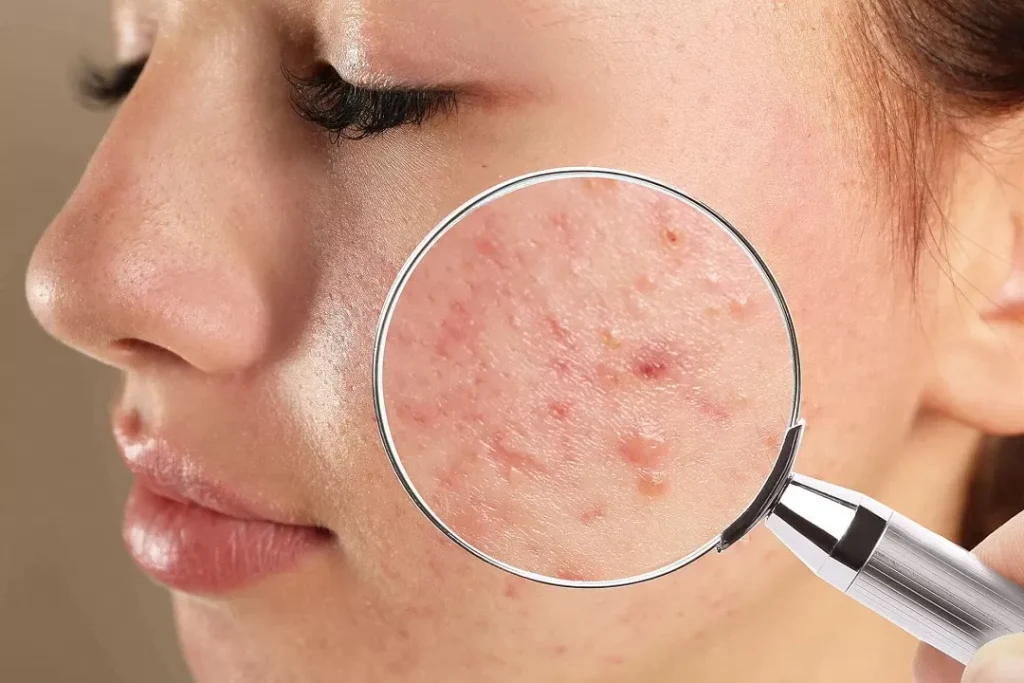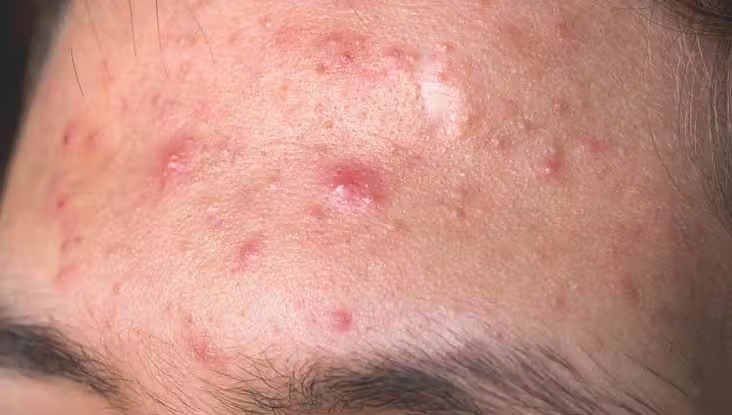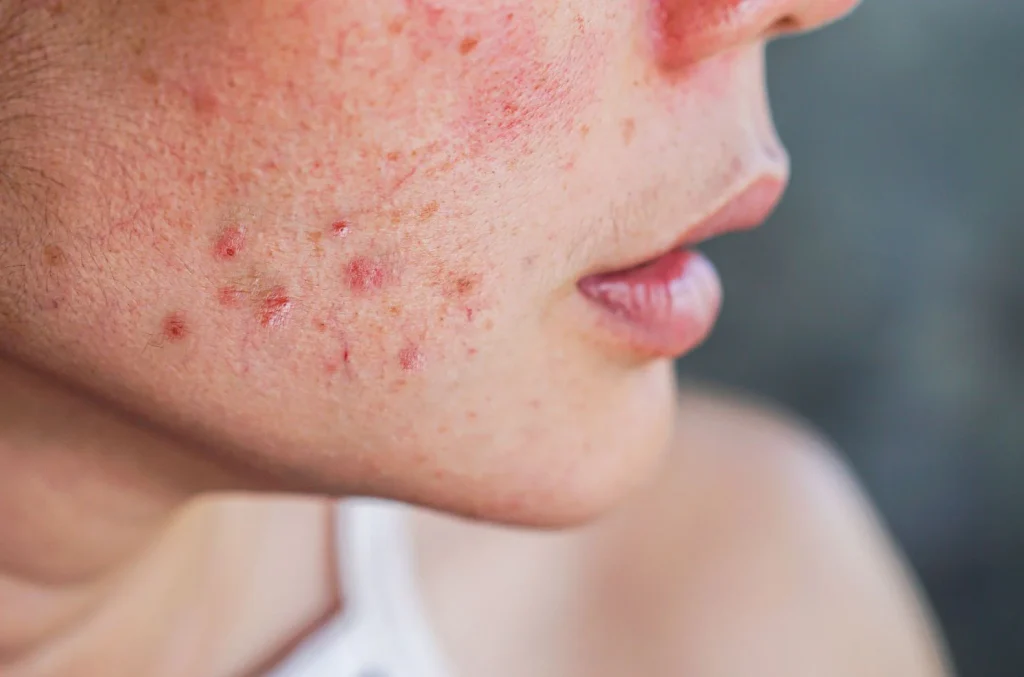Pimples are small, inflamed bumps that appear on the skin when hair follicles become clogged with oil, dead skin cells, and bacteria. They are a common symptom of acne and often occur on the face, neck, chest, back, and shoulders. Pimples can take various forms, such as whiteheads, blackheads, papules, pustules, nodules, or cysts, depending on their severity and the depth of the blockage. Hormonal changes, especially during puberty, menstruation, or pregnancy, are a major cause of pimples, but other factors like stress, oily skin, certain cosmetic products, poor hygiene, and diet can also contribute. While mild cases can often be managed with gentle skin care and over-the-counter treatments like salicylic acid or benzoyl peroxide, more severe or persistent acne may require prescription medication or professional treatments from a dermatologist. Proper skin care and avoiding the urge to touch or pop pimples can help prevent worsening of the condition.

Types of Pimples:
- Whiteheads – Closed clogged pores
- Blackheads – Open clogged pores (the black color is due to oxidation, not dirt)
- Papules – Small red, tender bumps
- Pustules – Pimples containing pus
- Nodules – Large, painful lumps under the skin
- Cysts – Painful, pus-filled lumps (a more severe form of acne)
Causes of Pimples:
Pimples are primarily caused by the clogging of hair follicles with excess oil, dead skin cells, and bacteria. One of the main factors is the overproduction of oil (sebum) by the skin’s sebaceous glands, which is often triggered by hormonal changes during puberty, menstruation, pregnancy, or conditions like PCOS. When this oil mixes with dead skin cells, it can block pores and create an ideal environment for bacteria, particularly Propionibacterium acnes, to grow and cause inflammation. Other contributing factors include stress, which can trigger hormonal fluctuations, and diet—especially foods high in sugar, dairy, or refined carbohydrates—which may worsen breakouts in some individuals. Using comedogenic (pore-clogging) makeup or skincare products, poor hygiene, or excessive face washing can also irritate the skin and lead to pimples. Additionally, certain medications and genetic factors play a role in acne development. Understanding these causes can help in choosing the right treatment and prevention methods.
- Excess Oil Production (Sebum):
- Overactive sebaceous glands produce too much oil, which can clog pores and lead to pimples.
- Clogged Hair Follicles:
- Dead skin cells can build up and block pores, trapping oil and bacteria inside.
- Bacteria (Propionibacterium acnes):
- This bacteria naturally lives on the skin but can multiply in clogged pores, causing inflammation and pus formation.
- Hormonal Changes:
- Hormonal fluctuations during puberty, menstruation, pregnancy, or due to conditions like PCOS can increase oil production and lead to breakouts.
- Stress:
- Stress doesn’t directly cause pimples, but it can trigger hormone changes that lead to acne flare-ups.
- Diet:
- Some studies suggest that foods high in sugar, dairy, or refined carbohydrates may worsen acne in some people.
- Use of Comedogenic Products:
- Skincare or makeup products that clog pores can contribute to pimples.
- Poor Hygiene or Overwashing:
- Not washing the face can lead to buildup, but overwashing can irritate the skin and worsen acne.
- Certain Medications:
- Some drugs, like steroids or lithium, can cause acne as a side effect.
- Genetics:
- A family history of acne increases the likelihood of developing pimples.

Solutions for Pimples :
Treating pimples involves a combination of good skincare habits, lifestyle adjustments, and, in some cases, medical treatment. One of the most effective ways to prevent pimples is to keep the skin clean by gently washing the face twice a day with a mild, non-comedogenic cleanser to remove excess oil and dirt. Over-the-counter treatments containing ingredients like salicylic acid, benzoyl peroxide, or alpha hydroxy acids can help unclog pores and reduce inflammation. It’s important to avoid popping or squeezing pimples, as this can worsen inflammation and cause scarring. For individuals with frequent or severe acne, dermatologists may prescribe topical retinoids, antibiotics, or oral medications such as hormonal treatments or isotretinoin. Maintaining a healthy lifestyle also plays a role—eating a balanced diet, managing stress, getting enough sleep, and drinking plenty of water can support clearer skin. Using oil-free, non-comedogenic skincare and makeup products can further help prevent clogged pores. With consistency and the right approach, pimples can be effectively managed and reduced over time.
- Gently wash your face twice a day
- Avoid touching or popping pimples
- Use non-comedogenic products (won’t clog pores)
- Over-the-counter treatments (benzoyl peroxide, salicylic acid)
- Prescription medications (retinoids, antibiotics, hormonal treatments)
- Dermatological procedures (chemical peels, laser therapy)
